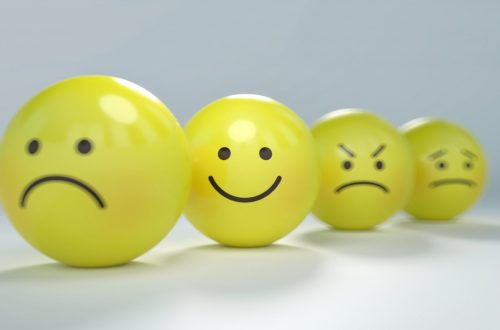
Time Is Fixed But Energy Is Not
“There’s not enough time.” “Time is running out.” “I wish I had more time.”
These are some complaints we hear frequently. High-performing, high-achieving professionals often ask for time-management strategies. After applying all kinds of self-depriving techniques, we can find at most 12–16 hours on a given day. From the Dalai Lama to Barack Obama, time is fixed for everyone. How is it even possible to do more? But wait, maybe we are looking at the wrong place.
Think about a very productive, fulfilling day from your recent past. What guided you when you planned that day? Did you automatically react to whatever ended up on your plate? Was there something different that day?
Kerry, a client of mine, realized that her energy guides her towards the tasks on a productive day. Some tasks are exciting and give her energy. Her planning is mostly about deciding where she wants to focus her energy on that day and ensuring that she can do it. All tasks are not created equal. For Kerry, dropping her 2-year-old off at the daycare is part of making room to get to her most-desired activities. Kerry’s job as a software engineer is full of challenges. Like any knowledge worker, she applies her knowledge and creativity regularly. This demands a lot of mental energy. Even if her boss interrupts her with a boring task or a co-worker asks her to do a favor, she knows what gives her energy and what drains the same; she consciously chooses how she responds to those interruptions. Kerry knows the importance of having some energy-boosting activities, such as swimming, walking, and meditation every day.
Recently, Kerry and I came up with an energy transaction profile for her.
| Activities | Energy Source or Sink |
| Walking, swimming, meditation, hobbies like sketching/painting, etc. | Source |
| Quality time with family and friends, meaningful conversation | Source |
| Learning about happiness and productivity | Source |
| “should”s, “have-to”s (some social obligations) | Sink |
| Meaningful chores –Tasks that create a better environment (Purposeful Cleaning, organizing, feeding her child mindfully, making special dinner for the family, etc.) | Source |
| Engaging/Challenging work projects, Social projects | Source and Sink |
| Unpleasant issues/conflicts /relationship issues | Sink |
She also learned that some work projects could go either way (source or sink) based on how she deals with them. Last week, she had a project with a lot of ambiguities. When she was trying to work on it by herself, she got overwhelmed and stressed out. It drained her energy. Noticing this, she shifted to her energy sources and went out for a walk. Afterward, she felt more grounded and came up with ideas to tap into her team. Teamwork and collaboration are energy sources for Kerry. She talked with some experienced people in her team and learned more about the background information. Once she had more clarity about the project, she narrowed its scope and made headways.
These days, whenever a request or opportunity comes to her, Kerry prioritizes it based on its energy rating instead of how much time it would take. She not only is more mindful about the energy sinks, she is more proactive about her energy sources.
The other day, Kerry had a key insight: Even though she tends to use the excuse of time shortage for certain tasks, she rarely has a problem making time for activities she feels truly excited about. The heightened awareness of energy management opened up endless possibilities for her.
———————————-
HBR article: Manage Your Energy, Not Your Time
Feature image: Image by Jan Vašek from Pixabay




